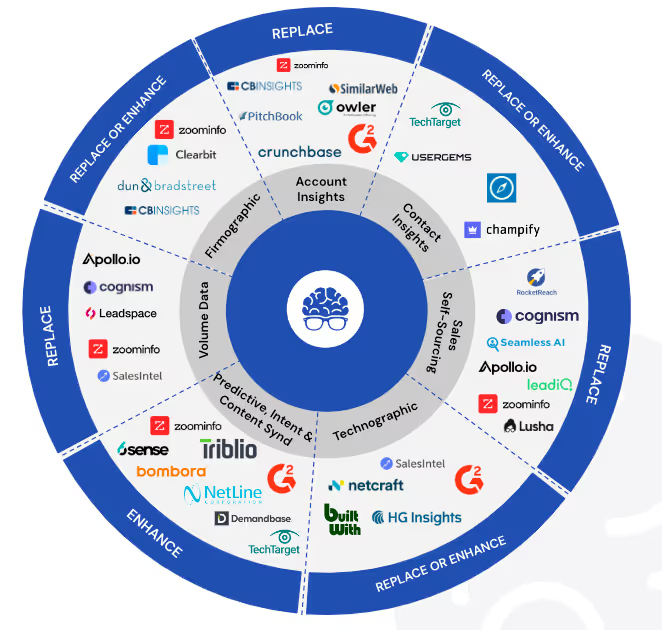Just as a masterfully crafted rub is essential to the success of a barbecue restaurant, imbuing each bite with depth and character, so too is a well-developed sales playbook critical to scaling a company's success. This playbook, much like a signature rub, combines the unique blend of strategies, tactics, and insights that define the flavor of a company's sales efforts. Inspired by the insightful perspectives of Daniel Pink, let's delve into the art of concocting the ultimate sales playbook, exploring its key ingredients, the chefs behind its creation, and the techniques to perfect its use.
Crafting Your Signature Rub: The Essence of a Sales Playbook
At its core, a sales playbook encapsulates the essence of a company's approach to winning business. It's the secret rub that ensures every customer interaction is seasoned with the right strategies to enhance opportunity qualification, boost win rates, accelerate pipeline velocity, and maximize value. Yet, many organizations, particularly those in the early stages of growth, operate without this crucial recipe, failing to recognize its potential to transform their sales process.
Identifying the perfect moment to compile this playbook is akin to knowing when to add the rub to the meat. The optimal time arises when a company acknowledges the necessity to systemize and amplify its sales operations, often when transitioning from founder-led sales to a structured sales team model.
The Culinary Team: Who Crafts the Playbook?
Creating a sales playbook is a collaborative culinary effort, requiring input from various departments within the organization:
- Sales Leadership: Offers the strategic vision and ensures the playbook aligns with broader business objectives.
- Marketing: Ensures the messaging resonates with target buyer personas, much like ensuring the rub complements the meat.
- Product Management: Shares deep insights into the product, akin to understanding the base flavors.
- Customer Success: Integrates customer feedback, adding layers of authenticity to the playbook.
- RevOps: Ensures operational efficiency, similar to maintaining a well-organized kitchen.
This collaborative approach ensures the playbook is a comprehensive guide that reflects the company's collective wisdom and strategic direction.
The Recipe for an Effective Playbook
A truly effective sales playbook, like a great BBQ rub, transcends basic ingredients (policies and processes) to focus on enhancing the flavor (sales effectiveness). It answers critical questions—Why Buy? Why Buy Now? Why Us?—that demand the company to engage in deep introspection and honesty, much like perfecting a rub's recipe requires balance and experimentation.
The playbook is organized into individual sales plays, each tailored to specific scenarios such as market segments or product solutions, mirroring how a rub is adjusted based on the meat and cooking technique. Essential components include:
- Ideal Customer Profile (ICP) and Buyer Personas: Know your audience, just as a chef knows their diners.
- Messaging Maps: Connect solutions to customer pains, ensuring each message is as well-paired as flavors in a rub.
- Insights Sharing and Objection Handling: Equip sales teams with knowledge to share and rebuttals to common objections, akin to knowing how to adjust cooking times and temperatures.
- Resources: Provide access to internal resources and customer success stories, adding depth to the sales narrative.
Perfecting the Blend: Best Practices and Pitfalls
Do's:
- Keep It Dynamic: A playbook, like a rub recipe, should evolve with tastes and trends, adapting to market changes and feedback.
- Start Simple: Begin with the basics before complicating the recipe, ensuring the foundational elements are solid.
- Ensure Adoption: Make the playbook as indispensable to the sales team as a rub is to BBQ, fostering widespread use and appreciation.
Don'ts:
- Overcomplicate: Avoid turning the playbook into a cumbersome tome. A rub should enhance, not overpower.
- Neglect Feedback: Failing to iterate based on feedback is like ignoring diner preferences—detrimental to success.
- Rush Automation: Implementing tools before the playbook's foundation is solid can lead to inefficiencies, akin to using a fancy grill before mastering the basics of barbecue.
The Right Time to Season: When to Develop Your Playbook
The decision to create a sales playbook should align with the company's growth phase, ideally when preparing to scale sales efforts beyond the initial team. This strategic tool reduces the learning curve for new hires and ensures consistency across the team, much like a rub ensures every dish has a signature flavor.
As the company grows and evolves, so too should the playbook, incorporating new insights, competitive intelligence, and feedback to remain relevant and effective. This ongoing refinement process ensures the playbook remains a key ingredient in the company's success.
Wrapping it all up in Butcher Paper
In the quest to scale a company's success, a well-crafted sales playbook is as crucial as the perfect rub is to a barbecue restaurant. It's not merely a document but a strategic tool that encapsulates the company's unique approach to winning business, ensuring every sales interaction is flavored with the potential for success. By drawing on the collective expertise of the organization, focusing on the playbook's essential elements, and adhering to best practices while avoiding common pitfalls, companies can develop a playbook that not only guides their current strategy but also serves as a blueprint for future growth. In doing so, they create a legacy of sales excellence, much like a barbecue joint becomes legendary for its signature flavors.




